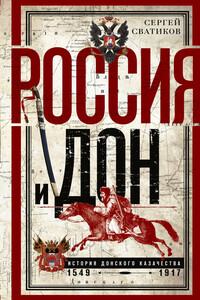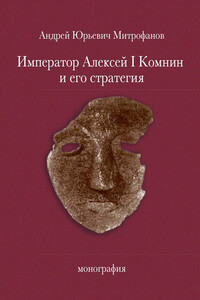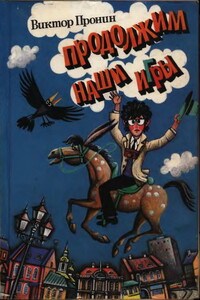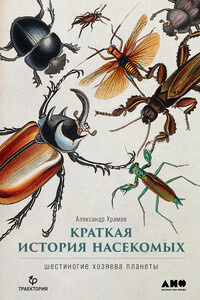Английский язык для специальных и академических целей: Международные отношения и зарубежное регионоведение. Часть 1 - [75]
By now it is clear, that America has lost that wager. The outstretched hand to Moscow has been slapped. The appeal to Tehran has been dismissed. A great power with a foreign policy of weakness reaps neither respect nor affection. And, for Germany and Egypt, confused messages from Washington have hurt U.S. interests.
The genuine rationale for NSA activity, including cooperation with German intelligence services, has been the challenge of fighting Islamist terrorism. U.S. intelligence has prevented attacks in Germany, most notably the Sauerland plot. Yet because the administration claims, for political reasons, that al-Qaeda has already been defeated and the terror threat is over, it has not been able to mount a convincing and robust defense against Snowden's whistle-blowing.
Meanwhile, Washington has never developed a compelling response to the Arab spring — leading from behind in Libya, passively watching the slaughter in Syria, and lacking a sense of direction in Egypt. When the U.S. lacks a clear voice on vital topics, we can be sure that our enemies will speak up against us.
For now, all signs point to a Merkel victory in Germany, but the tone of the campaign reminds us of a continued anti-American potential. Sooner or later the SPD and the Greens will be back in power, perhaps in a coalition with the former Communists in the Left Party. Relations with the U.S. will suffer. Predicting the future of Egypt is a fool's errand, but since nearly all of the political parties rely on denouncing the U.S., it's a sure bet that relations between Washington and Cairo will face strains, to say the least. The administration's clumsiness may even manage to break the decades-old relationship with Egypt and force the Egyptian leadership to seek a protector with deep pockets elsewhere.
Instead of healing the rifts of the past, the administration's foreign policy of weakness has bequeathed a legacy that has emerged vividly in the past months: The return of anti-Americanism.
Russell A. Berman, the Walter A. Haas Professor in the Humanities at Stanford University, is a senior fellow at the Hoover Institution and a member of the Working Group on Islamism and the International Order.
к
http://nationalinterest.org/feature/americas-costly-foreign-policy-follies-11522
By Robert W. Merry
October 22, 2014
The Reader
The United States has suffered through thirteen years of foreign-policy incompetence in the Oval Office, with little likelihood that the pattern will change before the next president is inaugurated. The country desperately needs salvation from such consistent blundering, but there's no particular reason to believe the next president will be any better. And thus, the gnawing question is: What accounts for so many years under two presidents when foreign policy turned out to be one fiasco after another?
Is it possible that we just had the bad luck of having two stupid presidents in a row? The problem with that thesis is that neither George W. Bush, nor Barack Obama lacks serious native intelligence. It doesn't take a stupid man to pursue a stupid policy; it merely takes a misguided man. And that raises a question as to how it happened that we had two misguided presidents in a row.
The only compelling answer is that there is something amiss in the general outlook of the country — or at least the general outlook of the country as perceived by its foreign-policy elite. The general outlook of the country, on foreign-policy matters today, seems to be made up of two fundamental philosophical concepts, both hopeless illusions.
One flows from what might be called the ameliorative impulse — the idea that mankind can be improved, that human nature can be altered, that we can find a way to spread amity and light through the world if we just work at it hard enough. This is the philosophical foundation of Wil-sonism, Woodrow Wilson's fond conviction that the application of American power in behalf of all mankind can spread democracy; and the spread of democracy will foster peace. It didn't work for Woodrow Wilson, and it hasn't worked since.
But it won't die. George W. Bush was peddling distilled Wilsonism when he declared, in his second inaugural address, that his aim was to eradicate tyranny in our world, in every nation and culture. He hadn't yet realized that his plan to create a true democracy in Iraq by invading the country and eradicating its tyranny wasn't exactly working as planned. Where do people get such ideas? Have they never heard of human nature?
But, even after the failure of Bush's foreign-policy efforts in behalf of the ameliorative impulse, Obama walked into the same trap. He said we just wouldn't be true Americans if we didn't jump on the bandwagon bent on destroying the tyranny of Libya's Muammar Qaddafi. So we led the bombing campaign, eradicated the old regime, and generated a sump of chaos that is proving impossible to control. He then instinctively concluded, seemingly on the basis of the ameliorative impulse, that Syria's Bashar al-Assad had to go. So now we are the sworn adversary of Assad at the same time that we are fighting those who are fighting Assad.

Предлагаем вашему вниманию адаптированную на современный язык уникальную монографию российского историка Сергея Григорьевича Сватикова. Книга посвящена донскому казачеству и является интересным исследованием гражданской и социально-политической истории Дона. В работе было использовано издание 1924 года, выпущенное Донской Исторической комиссией. Сватиков изучил колоссальное количество монографий, общих трудов, статей и различных материалов, которые до него в отношении Дона не были проработаны. История казачества представляет громадный интерес как ценный опыт разрешения самим народом вековых задач построения жизни на началах свободы и равенства.

Монография доктора исторических наук Андрея Юрьевича Митрофанова рассматривает военно-политическую обстановку, сложившуюся вокруг византийской империи накануне захвата власти Алексеем Комнином в 1081 году, и исследует основные военные кампании этого императора, тактику и вооружение его армии. выводы относительно характера военно-политической стратегии Алексея Комнина автор делает, опираясь на известный памятник византийской исторической литературы – «Алексиаду» Анны Комниной, а также «Анналы» Иоанна Зонары, «Стратегикон» Катакалона Кекавмена, латинские и сельджукские исторические сочинения. В работе приводятся новые доказательства монгольского происхождения династии великих Сельджукидов и новые аргументы в пользу радикального изменения тактики варяжской гвардии в эпоху Алексея Комнина, рассматриваются процессы вестернизации византийской армии накануне Первого Крестового похода.

Виктор Пронин пишет о героях, которые решают острые нравственные проблемы. В конфликтных ситуациях им приходится делать выбор между добром и злом, отстаивать свои убеждения или изменять им — тогда человек неизбежно теряет многое.

«Любая история, в том числе история развития жизни на Земле, – это замысловатое переплетение причин и следствий. Убери что-то одно, и все остальное изменится до неузнаваемости» – с этих слов и знаменитого примера с бабочкой из рассказа Рэя Брэдбери палеоэнтомолог Александр Храмов начинает свой удивительный рассказ о шестиногих хозяевах планеты. Мы отмахиваемся от мух и комаров, сражаемся с тараканами, обходим стороной муравейники, что уж говорить о вшах! Только не будь вшей, человек остался бы волосатым, как шимпанзе.

Настоящая монография посвящена изучению системы исторического образования и исторической науки в рамках сибирского научно-образовательного комплекса второй половины 1920-х – первой половины 1950-х гг. Период сталинизма в истории нашей страны характеризуется определенной дихотомией. С одной стороны, это время диктатуры коммунистической партии во всех сферах жизни советского общества, политических репрессий и идеологических кампаний. С другой стороны, именно в эти годы были заложены базовые институциональные основы развития исторического образования, исторической науки, принципов взаимоотношения исторического сообщества с государством, которые определили это развитие на десятилетия вперед, в том числе сохранившись во многих чертах и до сегодняшнего времени.

Эксперты пророчат, что следующие 50 лет будут определяться взаимоотношениями людей и технологий. Грядущие изобретения, несомненно, изменят нашу жизнь, вопрос состоит в том, до какой степени? Чего мы ждем от новых технологий и что хотим получить с их помощью? Как они изменят сферу медиа, экономику, здравоохранение, образование и нашу повседневную жизнь в целом? Ричард Уотсон призывает задуматься о современном обществе и представить, какой мир мы хотим создать в будущем. Он доступно и интересно исследует возможное влияние технологий на все сферы нашей жизни.